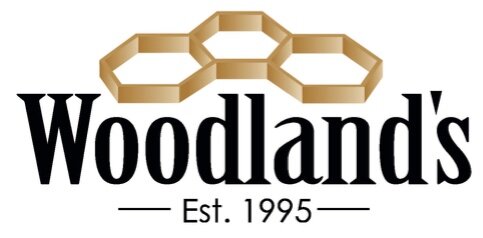FAQs
What does MG/MGO stand for?
MG or MGO is the abbreviation for Methylglyoxal, a natural compound that is found in higher concentrations in Manuka honey. Manuka flowers secrete nectar which is naturally high in Dihydroxyacetone (DHA), a precursor to the compound Methylglyoxal (MG/MGO).
Where does Woodland's Organic Manuka Honey come from?
Our bees and processing premises are based exclusively in the pristine remote Northern Coromandel, New Zealand.
Why does Manuka honey vary in colour, texture and taste?
Woodland's Manuka is raw and certified organic, it has not been pasteurised, highly processed or heated. It is as natural as possible and it is normal for variations to occur within each harvest and batch of Manuka.
What is the difference between MG100+, MG200+, MG300+ and MG450+
The higher the MG/MGO rating, the higher the potency of the Manuka honey.
How do I know Woodland's Organic Manuka Honey is authentic?
Being 100% family owned and operated, Woodland's has total control over the entire production chain from hive to jar. Our certified, organic, single-source Manuka is produced, harvested, extracted, packed and labelled by hand on our own premises, providing full traceability. Each batch is independently tested by an MPI accredited laboratory in New Zealand to guarantee authenticity.
Is Manuka honey safe for children to eat?
Yes, for children over 1 years of age Manuka honey is safe for children to consume. It is not safe for infants under 1 years of age.
What makes Woodland's Organic Manuka Honey so special?
Woodland's is a single source certified organic Manuka honey. Our bees gather some of the finest nectar from the native Manuka flowers to produce premium organic Manuka honey. Our honey is extracted warm from the hive and carefully processed at hive temperature to retain its natural enzymes and pollens, as pure and natural as possible.
How should I store my Manuka honey?
We recommend storage below 20° C/68° F in a cool, dry place out of direct sunlight.
Why are there crystals in my Manuka honey?
As Woodland's is certified organic, and not pasteurised or creamed, it is normal for Manuka honey to naturally crystallise. We recommend storage below 20° C/68° F to reduce the chance of crystallisation. However, if crystallisation does occur simply warm honey in a glass dish over a gently simmering pot of water, stirring constantly until crystals dissolve taking care not to over heat the honey.
Is your honey free from residues and glyphosate?
Yes, during routine testing at accredited laboratories no multi-residues or glyphosate has been detected in our honey.




